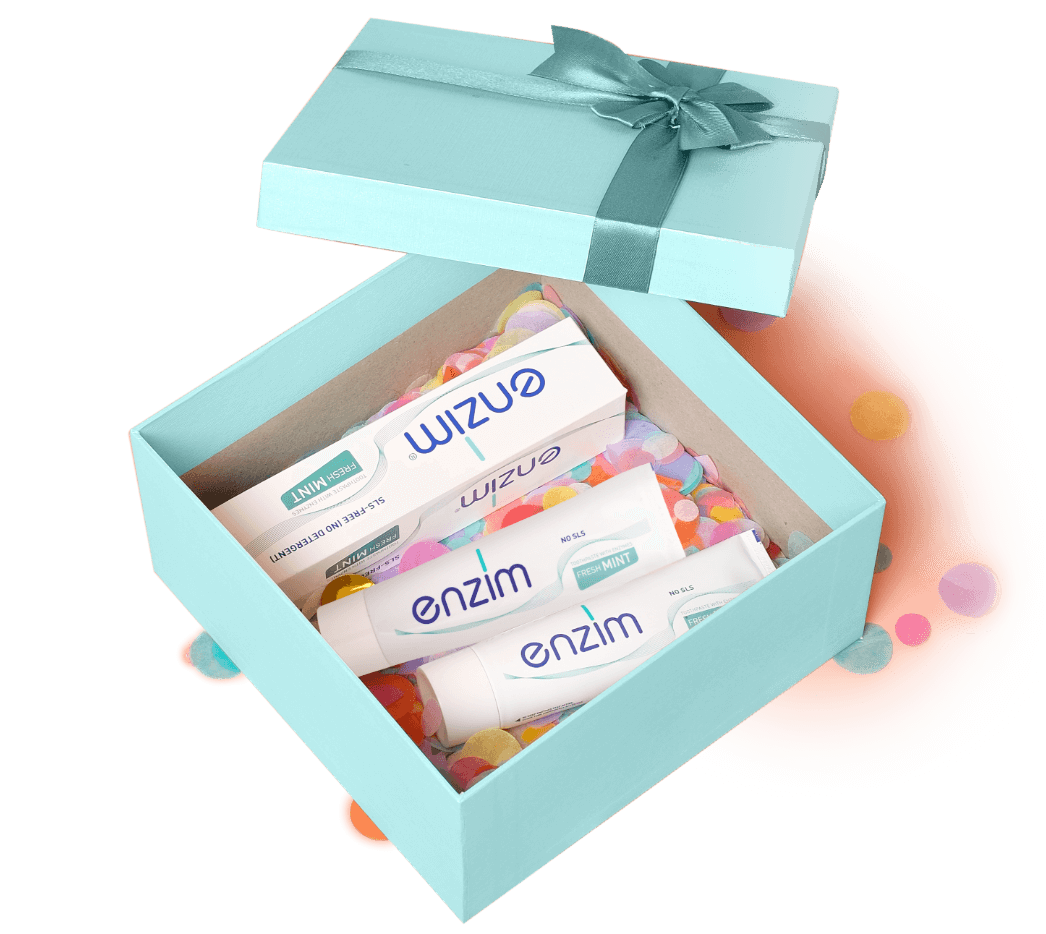Is Mouthwash Bad for You? Myths vs Facts

Is Mouthwash Bad for You? Myths vs Facts - Enzim Singapore
Mouthwash is a staple in many people’s bathrooms, often portrayed as the key to fresh breath and a healthy smile. But is mouthwash bad for you? Or are these concerns overblown? The truth lies somewhere in between.
In this article, we will explore the myths, the facts, and the potential side effects of regular mouthwash use. We will also discuss why mouthwash might not be necessary for everyone, and how gentle, enzyme-based toothpastes like Enzim toothpaste could provide a safer, more natural approach to daily oral care.
Common Myths About Mouthwash: Separating Fact from Fiction
Mouthwash has long been surrounded by myths and half-truths. Let's break down the most common ones and see what science says.
Myth 1: Mouthwash Causes Oral Cancer
One of the biggest concerns people have about mouthwash is its alleged link to oral cancer, especially with those containing alcohol. While early studies raised questions, more recent, large-scale reviews by health organisations, including the American Dental Association, found no strong or conclusive evidence linking mouthwash directly to cancer. That said, excessive use of alcohol-based mouthwash is still not advised, especially if combined with smoking or heavy drinking.
Myth 2: Mouthwash Can Replace Brushing and Flossing
Many believe that a quick rinse with mouthwash is enough to keep the mouth clean. However, mouthwash cannot remove plaque or food debris. Brushing twice daily and flossing once a day remain the cornerstones of oral hygiene. Mouthwash can complement these steps but should never replace them.
Myth 3: All Mouthwashes Are the Same
There is a wide range of mouthwashes on the market each with different purposes and ingredients. Some target bad breath, others target plaque, while some are formulated for gum health. It is crucial to read the label carefully and understand what the product is designed to do. Choosing the wrong type may do more harm than good, especially for those with sensitive mouths.
Is Mouthwash Actually Bad for You? The Truth
While mouthwash can provide benefits, particularly in certain medical situations or for people with specific oral health issues, routine use for the average person may have downsides that are often overlooked.
1. Disruption of the Oral Microbiome
Our mouths are home to billions of bacteria—some good, some bad. Overusing mouthwash, especially those with strong antibacterial agents, can disrupt this delicate balance, potentially wiping out good bacteria along with the harmful ones. This can make the mouth more vulnerable to conditions such as dry mouth, bad breath, and even oral thrush.
2. Dryness and Irritation
Alcohol-based mouthwashes are known to cause a burning sensation, dryness, and irritation, especially in those with sensitive tissues or those prone to ulcers. This dryness can lead to further issues, such as bad breath, as a healthy flow of saliva is essential for keeping the mouth clean and balanced.
3. Masking the Symptoms, Not Solving the Problem
Mouthwash is a quick-fix solution that can temporarily mask issues like bad breath or a bad taste in the mouth. However, it often fails to address the root causes, which may be related to plaque buildup, gum disease, or underlying health issues.
When Mouthwash Might Still Be Helpful
Despite its drawbacks, mouthwash does have a place when used appropriately and under the right circumstances, including:
-
Post-dental procedures where reducing bacterial load is critical.
-
Managing gum disease or infections, as prescribed by a dental professional.
-
Temporary freshening when brushing isn’t possible (such as after meals or during travel).
In these cases, it is best to opt for alcohol-free or specialised therapeutic mouthwashes recommended by dentists.
Why Enzyme-Based Toothpaste Is a Smarter, Safer Daily Choice
If you are looking for a safer, more natural approach to daily oral care—without the potential side effects of mouthwash enzyme-based toothpastes offer an excellent alternative.
What Makes Enzyme Toothpaste Different?
Enzyme toothpastes, like Enzim toothpaste, work by supporting the mouth’s natural defences. Instead of using harsh chemicals or alcohol, Enzim toothpaste contains natural enzymes that:
-
Boost the natural antibacterial action of saliva.
-
Help control harmful bacteria while supporting the good ones.
-
Gently reduce plaque buildup and prevent gum problems without irritation.
-
Support fresh breath by tackling the root cause plaque and bacteria.
Ideal for Sensitive Mouths and Everyday Use
Unlike some mouthwashes, Enzim toothpaste is suitable for daily use, even for those with sensitive mouths, ulcers, or dryness issues. Its gentle formulation helps maintain a healthy oral microbiome, reduces the risk of irritation, and keeps your mouth fresh and clean naturally.
Conclusion: Is Mouthwash Bad for You?
The answer isn’t black and white. Mouthwash is not inherently bad, but overuse or misuse can lead to unintended side effects, especially for those with sensitive mouths or oral health issues. It should be seen as an occasional helper rather than a daily necessity.
For most people, focusing on proper brushing, flossing, and using a gentle enzyme-based toothpaste like Enzim is a more effective and safer way to maintain long-term oral health and freshness.
If you're looking to care for your mouth gently, support your natural defences, and enjoy lasting freshness Enzim toothpaste might just be the smarter choice over routine mouthwash use.



